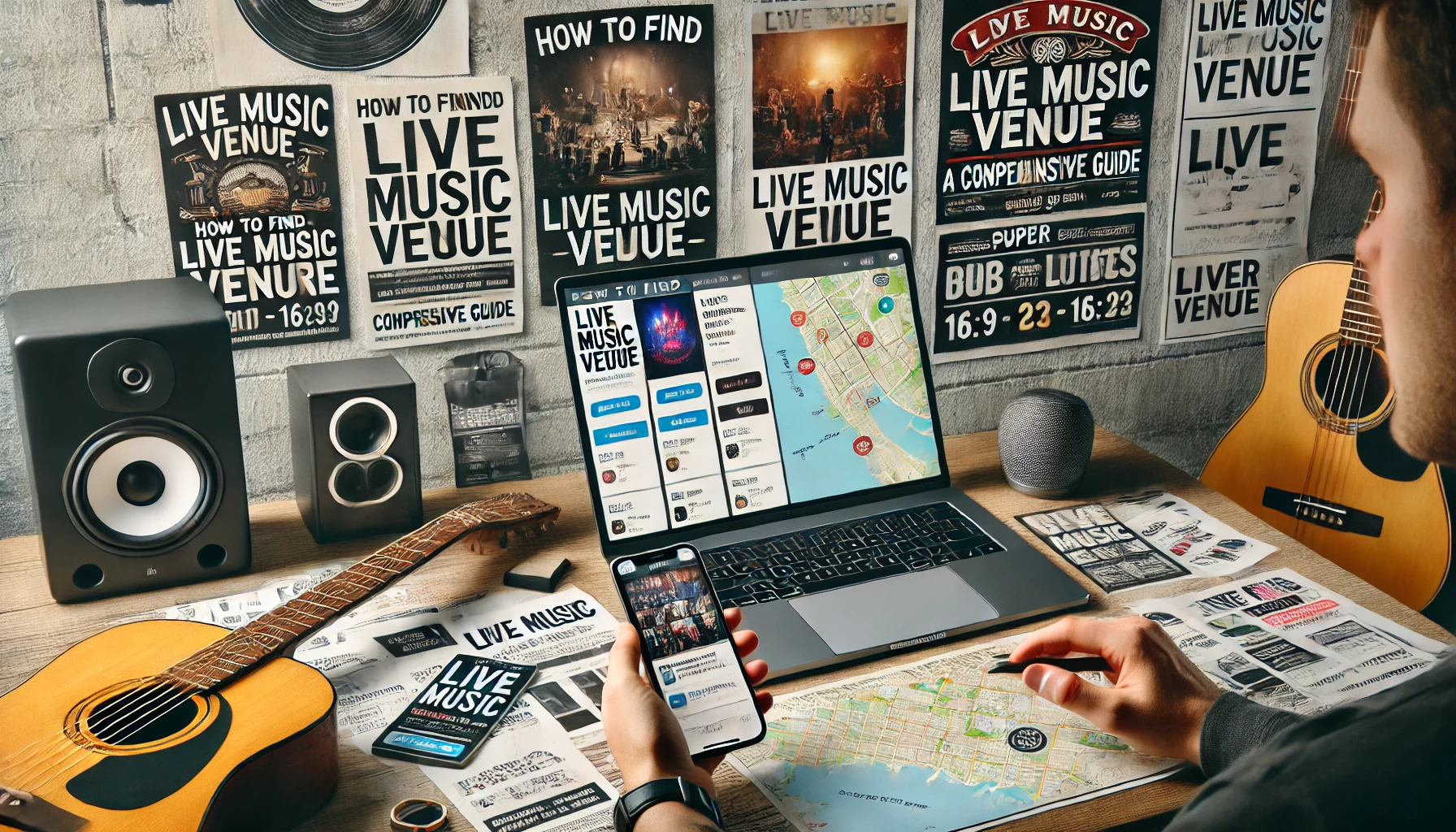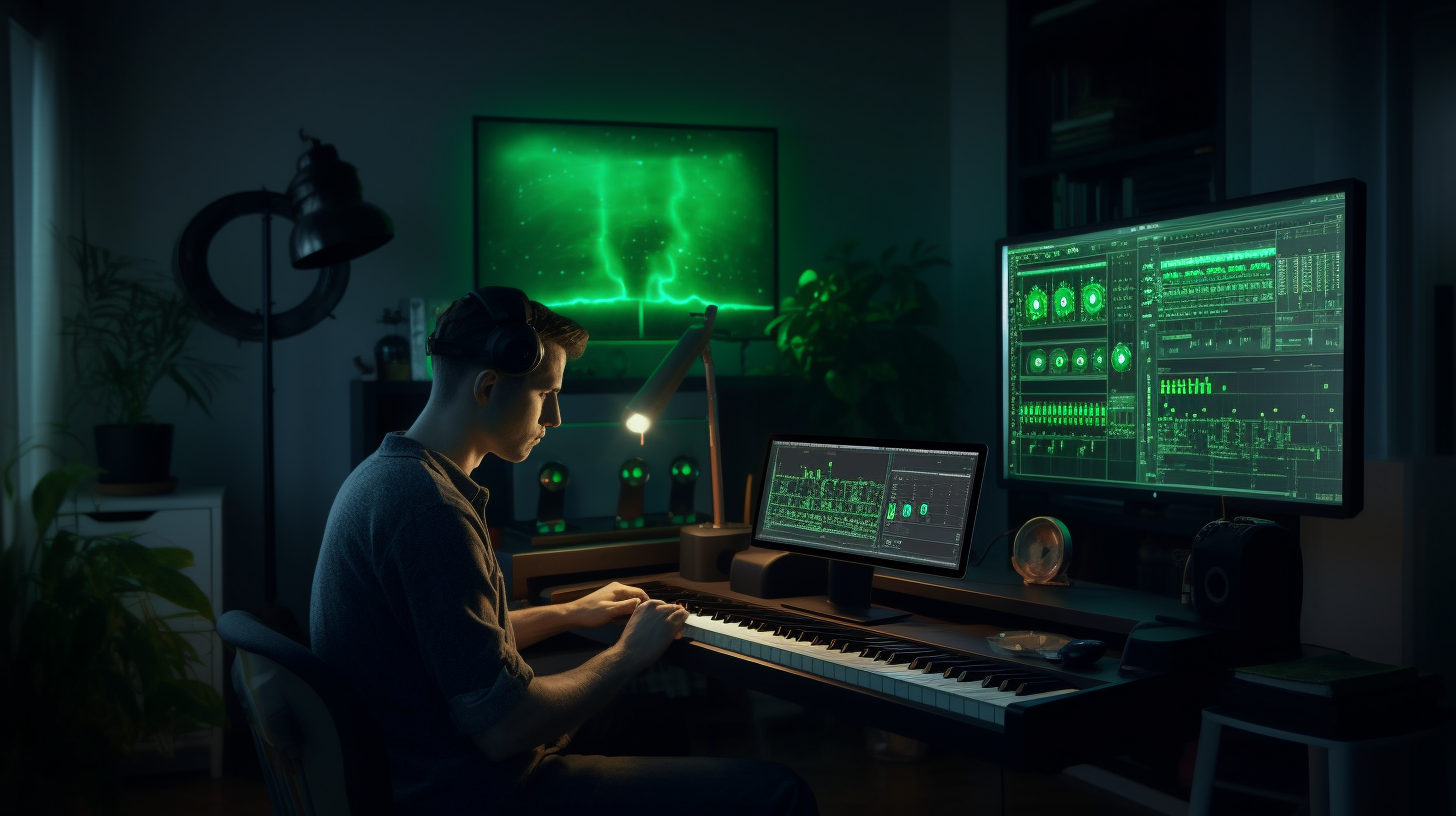How to Find a Live Music Venue: A Comprehensive Guide
Finding the right venue to perform live is crucial for musicians looking to connect with audiences and build their careers. Whether you’re a solo artist or part of a band, choosing the right venue can make or break your performance. Some venues offer the perfect atmosphere for your music, while others may help you expand your fanbase and network with other musicians. In this guide, we’ll walk you through the steps to find a live music venue that’s right for your style, location, and audience size, and how you can use Muibas to network with other musicians and increase your chances of booking the perfect venue.
- Know Your Genre and Audience
The first step to finding the right venue is understanding your genre and target audience. Different venues cater to different music styles and crowd sizes, so it’s essential to match your sound to the venue that best fits your performance needs.
Steps to Identify the Right Venues:
- Define Your Genre: Are you an indie artist, a rock band, or an electronic music producer? Knowing your genre helps you narrow down your venue search.
- Understand Your Audience Size: If you’re a new artist, start with smaller venues that attract intimate crowds. As your fanbase grows, you can target larger venues with more capacity.
- Look at Similar Artists: Research where other artists in your genre perform. If they’re playing certain venues, chances are those venues will suit your style too.
Muibas Connection: Use Muibas to connect with other musicians in your genre. By networking with other artists, you can ask for recommendations on venues and even collaborate on shared gigs.
- Research Local Venues
Once you know what type of venue you’re looking for, start researching local options. The best place to begin is by looking at venues in your area that host live music regularly.
Tips for Venue Research:
- Visit Venue Websites: Most venues post their event calendars online. This allows you to see what types of acts they book and what kind of crowds they attract.
- Check Social Media: Many venues promote their shows on social media. Follow them to get a sense of their music style and whether they’d be a good fit for you.
- Read Reviews: Check online reviews or talk to other musicians to learn about the venue’s reputation, sound quality, and crowd engagement.
Muibas Connection: On Muibas, you can network with musicians who have played at various venues and ask for feedback. They can provide insights into which venues are good for your genre and performance style, helping you make an informed decision.
- Visit Venues in Person
While online research is helpful, visiting venues in person allows you to get a real sense of the space. You can see how the stage is set up, assess the sound system, and observe how the audience interacts with the performers.
What to Look for When Visiting:
- Stage Setup: Is the stage large enough for your performance? If you’re part of a band, consider whether the venue can accommodate multiple musicians and equipment.
- Sound System: Listen to the sound quality during live shows. Good sound engineering is crucial for a great live performance.
- Atmosphere and Audience: Does the venue’s vibe match your music? Does the audience seem engaged?
Muibas Connection: If you’re visiting venues with the intent to play there, reach out to local musicians on Muibas who have performed there before. They can give you tips on how to approach venue management or what to expect from the audience.
- Network with Promoters and Other Musicians
Building relationships with promoters, venue owners, and other musicians is a key part of landing gigs. Often, the best way to get a gig is through referrals and networking.
Networking Strategies:
- Attend Local Shows: Go to live shows at the venues you’re interested in. Introduce yourself to the venue staff, the bands playing, and other musicians.
- Collaborate with Local Musicians: Join forces with other musicians to co-headline a show. This is especially helpful when you’re new to the scene, as it allows you to play in front of someone else’s audience.
- Contact Promoters: Reach out to local event promoters or booking agents who work with the venues on your list. Promoters often have relationships with venue managers and can help you get booked.
Muibas Connection: On Muibas, you can find other local musicians who are looking for collaborators. By networking with other artists, you can set up joint gigs, get introduced to venue managers, or work together to organize events.
- Use Booking Platforms
Several online platforms are specifically designed to help artists find live music venues and book gigs. These platforms allow you to browse venues, contact booking managers, and apply for performance slots.
Top Platforms for Booking Gigs:
- Sonicbids: A popular platform for indie artists to apply for gigs, festivals, and tours.
- GigSalad: A platform where you can find local gigs, including private parties and smaller events.
- ReverbNation: Offers opportunities for live performances and showcases, especially for emerging artists.
Muibas Connection: After securing a gig on one of these platforms, use Muibas to collaborate with other musicians, finalize your setlist, and rehearse with your iBand before the show. You can also ask for advice from musicians who have experience booking through these platforms.
- Tailor Your Pitch to Venues
Once you’ve identified the venues that fit your style, it’s time to reach out. When contacting venues, it’s important to present yourself professionally and provide them with all the necessary information about your music.
Tips for Pitching to Venues:
- Send an EPK: Include a professional Electronic Press Kit (EPK) with your music, bio, photos, and performance videos.
- Highlight Your Experience: If you’ve played other gigs, mention them. If not, emphasize your growing fanbase or any notable achievements.
- Be Clear and Polite: Keep your message short, but provide all relevant details. Mention specific dates you’re available and why your music would be a good fit for the venue.
Muibas Connection: Collaborate with other musicians on Muibas to polish your recordings or performance videos before sending them to venues. You can also ask your collaborators for help crafting the perfect pitch.
- Consider Smaller, Non-Traditional Venues
If you’re just starting out or are having trouble booking larger venues, consider performing at smaller or non-traditional venues like cafes, breweries, or art galleries. These spaces often have a more intimate vibe and may be easier to book for emerging artists.
Advantages of Smaller Venues:
- Less Competition: Smaller venues are often easier to book because they have fewer artists vying for performance slots.
- Intimate Atmosphere: These venues allow for closer interaction with the audience, which can help build a loyal fanbase.
- Good for Practice: If you’re new to performing live, these venues provide valuable experience in front of smaller, more forgiving crowds.
Muibas Connection: Use Muibas to connect with local musicians who have played at smaller venues. They can provide insights into which non-traditional venues support live music and how to approach them for gigs.
Conclusion: Finding the Perfect Live Music Venue with Muibas
Finding the right venue for your live performance takes time, research, and networking, but it’s a crucial step in growing your music career. Whether you’re looking to play at a major venue or a smaller, more intimate space, knowing how to match your style with the right venue will help ensure a successful performance.
By leveraging platforms like Muibas, you can collaborate with other musicians, refine your setlist, and prepare for live shows. Networking with fellow artists on Muibas can also lead to more gig opportunities, recommendations for venues, and tips on how to succeed in the local music scene. With persistence and the right approach, you’ll be well on your way to finding and booking the perfect venue for your live music.


